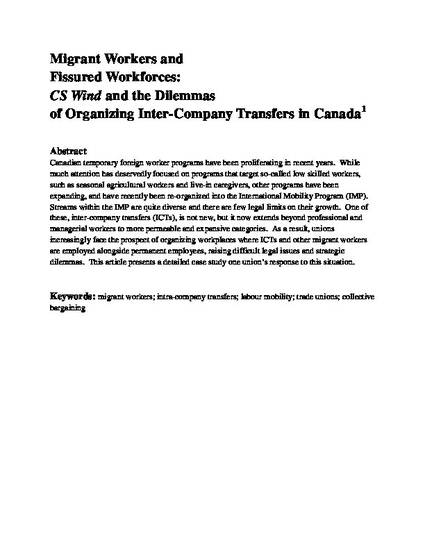
- Collective bargaining,
- Intra-company transfers,
- Labour mobility,
- Migrant workers,
- Trade unions
Canadian temporary foreign worker programs have been proliferating in recent years. While much attention has deservedly focused on programs that target so-called low-skilled workers, such as seasonal agricultural workers and live-in caregivers, other programs have been expanding, and have recently been reorganized into the International Mobility Program (IMP). Streams within the IMP are quite diverse and there are few legal limits on their growth. One of these, intra-company transfers (ICTs), is not new, but it now extends beyond professional and managerial workers to more permeable and expansive categories. As a result, unions increasingly face the prospect of organizing workplaces where ICTs and other migrant workers are employed alongside permanent employees, raising difficult legal issues and strategic dilemmas. This article presents a detailed case study of one union’s response to this situation.
Available at: http://works.bepress.com/ericm_tucker/144/
